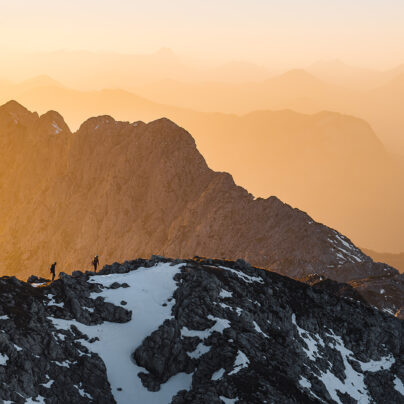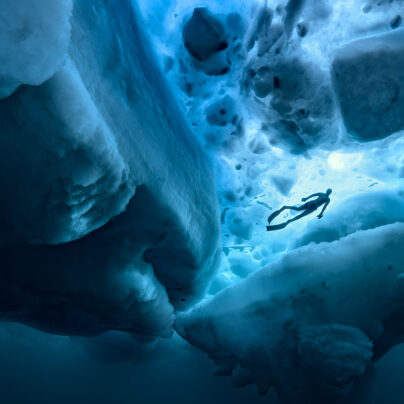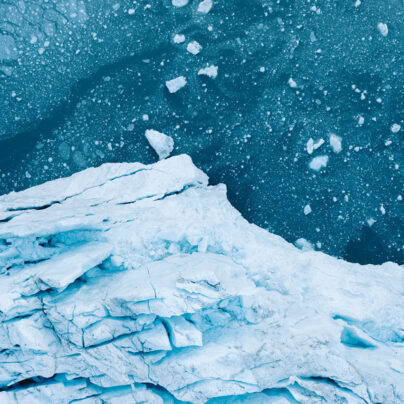An Acquaintance With Fear
Aldo Kane
Photo by Martin Hartley
In Sidetracked Volume Five, Aldo Kane tells his story of working within the Ebola Redzone in Sierra Leone. Here, he takes a closer look at fear and how to cope with this extreme emotion.
The four of us hurled ourselves face down in the sand. My lungs were screaming, trying to pull acrid air through the carbon filter attached to the side of my respirator. Sweat steamed up my mask and burned my eyes. It was the middle of the afternoon, the hottest part of the day, and well over 40 degrees. My heart was thumping out of my chest from the sudden burst of action but now it grew louder, making me tremble uncontrollably. I had that familiar taste of metal in my mouth and adrenaline coursed through my veins.
We listened as the mortar rounds whistled overhead. I only allowed myself to take breath when I heard them landing somewhere else. The constant whistle told me that the shots were flying away from our exposed position, but it didn’t take long for them to adjust their aim – now the whistling grew shorter by seconds and then suddenly stopped. The next few minutes seemed like an eternity. When the whistling stops it means the bombs are coming straight down. We lay staring at each other, paralysed, not knowing where the next one would land and if these were our last few seconds on the planet.
To write an article on fear is a mammoth task. Everyone has different demons to face, but I’ve written about what fear means to me in the hope that it helps others deal with their own challenges, instead of letting fear be the helmsman of their rudderless ship. I am no psychologist. This comes from a lifetime spent in some of the most extreme environments on Earth, and is a personal exploration of one of the most powerful and basic human emotions. FEAR.
Since I joined the Royal Marines at the age of 16, I have become accustomed to living with and dealing with fear. There’s no time for uncertainty when it comes to life-or-death situations in one of the world’s most elite forces. But at the height of my most fearful moments, my life has never been so perfectly focused, clear and detailed – an uncluttered mechanical process relying on instinct, muscle memory and specific knowledge.
The feeling of excitement is often misinterpreted as fear. The physical characteristics are exactly the same, but what I am actually feeling is a natural reaction to my body getting ready for action. At this point it is not fear, it is not anger, it is not nervousness – it’s the body preparing itself. This should never be mistaken for weakness. What you are feeling is your body giving you an edge, a resource for you to use however you please. I have felt this several times in my life and I have trained my brain to accept that it is not fear – it is my body getting stronger.
The feeling of excitement is often misinterpreted as fear. The physical characteristics are exactly the same, but what I am actually feeling is a natural reaction to my body getting ready for action.
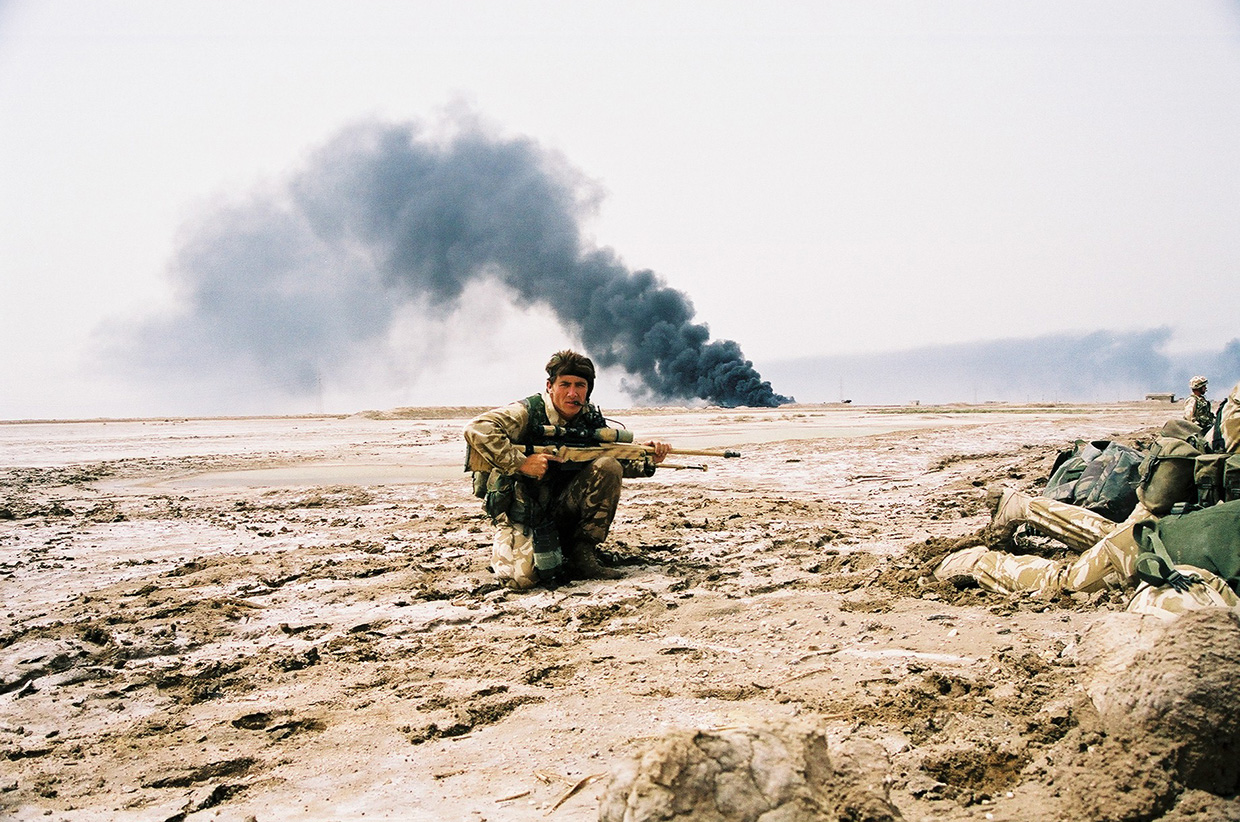
I remember not being able to sleep the night before I flew into battle. My mind raced, I could barely hold my hands straight and my stomach was in knots, but as anyone who has been to the front line will tell you, this is the excitement kicking in. What really makes you perform under extreme stress is how that excitement is used.
Previous experiences, judgment and opinions influence our perception of danger and the fear we feel. Good judgment only comes from experience, and experience usually comes from bad judgment – rarely do we learn anything from success. The wall we had to bail on will teach us more than five successful top outs. If we fail to realise this then we risk making the wrong decisions in life based on a faulty perception of danger.
Over the years I have learned to distinguish real danger from perceived danger. This projects an image of bravery – and some people might think I have a death wish – but this couldn’t be further from the truth. For example, a few years ago I led an expedition into one of the world’s most dangerous volcanoes. Not only did the volcano have a track record of killing, it was also in the Democratic Republic of the Congo, an area broken by horrific fighting and war. On the surface, only a fool would even attempt to do this, but using my system I was able to carry out and lead a 100% successful mission to the very bottom of the active crater, next to the largest lava lake on Earth.
How did I do this? By removing emotion from my thoughts, a process instilled in me during my sniper training and now second nature. Even in the heat of battle, stepping back from the situation and separating myself from reality has always given me that ‘Hamlet Cigar’ moment when all around me is in chaos. In this state I can observe, assess, internalise and then react based on facts, not opinion misguided by fear. As we’ve seen, judgement can be poor from the start – and when clouded by emotion you’re well on your way to creating a paralysing bubble of fear.
After watching something I have worked on for TV, people often pass comment on the dangerous nature of my job and say how ‘I must have no fear’. Well, the opposite is true. Fear is a completely natural and vital emotional response to the threat of danger, whether legitimate or perceived, and thus it’s only natural for me to feel fear. But the emotional response often translates to physical symptoms which can change behaviour. In order to protect myself from the danger and the subsequent fear, I must do several things in rapid succession. To begin with it’s absolutely critical to assess whether the threat is real and the fear justified.
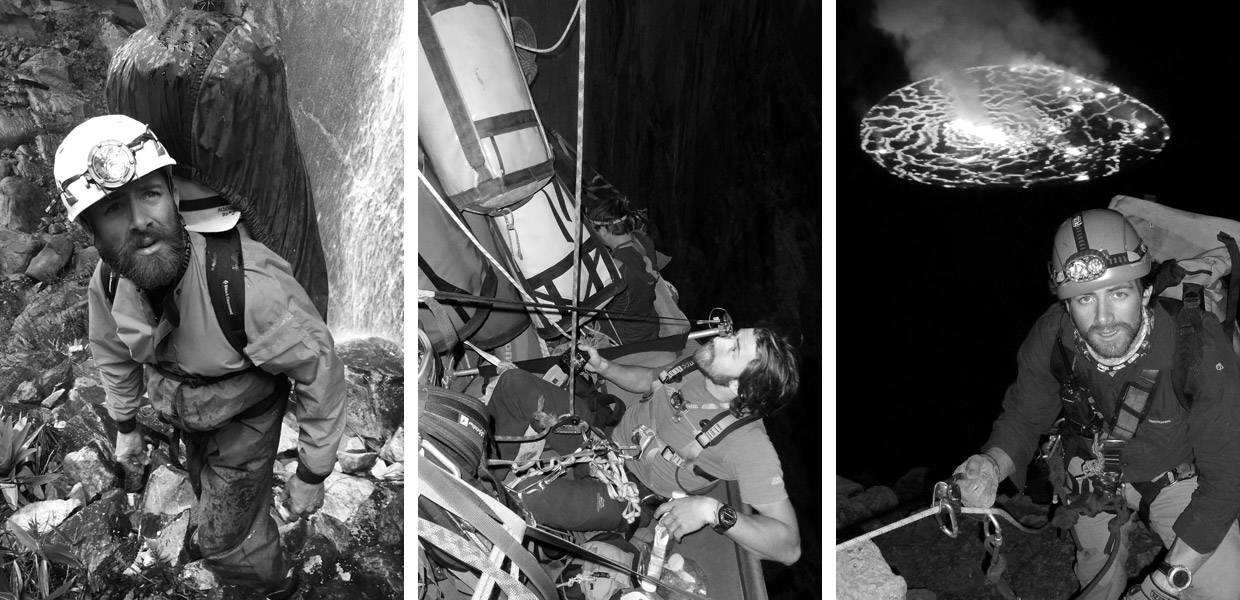
Fear comes in two varieties: fear you are in control of and fear which you are not. To determine whether the threat is real I must first assess what type of danger I face. Is the danger real – an objective danger? If that rock falls on me then I will be killed – that is a fact. Objective dangers must be dealt with accordingly. This threat is still present even if other factors are mitigated, so I must now work out the likelihood of the event taking place. If it’s unlikely to happen then I can continue with my process and let it motivate me to carry on, not be paralysed. Objective dangers are real and so too should be the associated fear.
On the other hand is the much worse fear derived from subjective dangers. Everyone experiences this – if not dealt with it can completely destroy our lives and goals. Subjective fear is the stealer of dreams, the insidious voice that brings the thoughts of failure and thus makes it reality. We become what we think about. Subjective fear is based on opinions and exaggerated visions, but these thoughts are not based on fact and are in no way ever helpful to me. When faced with subjective fear I must always remind myself to suppress opinions and only ever deal in facts detached from emotion. We must charge head first in the direction of our irrational subjective fears, beat them into submission where no one will ever hear them. Living a life controlled by fear and the unknown leads only to failure and ensures we are shackled to mediocrity and underachievement.
Over the years, my job has taken me to some of the most dangerous and far-flung places on the planet in search of adventure and action. I’m often working with the top professionals in their respective fields. I’ve spent days on big walls with expert climbers, hunted killer viruses in the darkest corners of the Congo, been skydiving with the best, and I’ve explored remote caverns with the world’s top cavers. One thing becomes very clear: they are all at the top of their game because that’s where they want to be. They are the best because they put themselves in the arena and ask ‘why not them?’ They have banished fear by combining specific knowledge and experience. They are truly in their comfort zone high on the wall or on a technical deep dive, but ask them to come and try another activity where they have no knowledge and you will see the same fear of the unknown that we are all secretly hiding.
Fear of the unknown is probably the biggest fear that we all face. The top extreme adventurers I mentioned above would often question my fear in their playground, but they would be armed with their specific knowledge and experience – I, on the other hand, would be stretching my comfort zone in yet another extreme environment and learning everything I could from it. Using the above techniques I have been able to thrive in environments where many would freeze. This is something we can all do. Subjective fear is based on opinions so we can immediately remove some of the anxiety by learning the true, unbiased facts. In other words, if we can seek the specific knowledge we need then we can dispel the myth. Very rarely in life do we genuinely face life-or-death situations – so when we examine the facts and ask ourselves what’s the worst thing that could possibly happen, we realise that the situation is rarely as bad as it seems. Knowledge dispels fear.
Many fears can be beaten by seeking knowledge, but when I couple this with a strict goal-setting regimen then I am well on my way to smashing my fears and stretching my comfort zone. Many people are so scared of the unknown that they simply never take the first step on their journey from mediocrity. You wouldn’t wait at home for all the green lights to come on before you drove to the gym, so why do it with the most precious of all commodities, your life?
I find goal setting especially powerful when trying to defeat my fears. The best way to do it is to break down the challenge and make a list of smaller steps, but don’t set your goals too low or you’ll never develop. The second rule for goal setting is to never sell out or compromise on your goal – you’ll only be able to beat your fears if you face them head on with conviction. It’s also important to always be the person in control and making the decisions. If you seek specific knowledge, set goals and make decisions, you will very quickly find that you are no longer living a life controlled by fear. You will be the person at the front of the crisis leading the way for the rest to follow. Remember, a crisis is only a fork in the road. Be a burning light – only you can master your fear and release the shackles of timidity.
Aldo Kane is a Former Royal Marines Commando and his company Vertical Planet provides safety services for the TV and Film industry in some of the worlds most hostile and extreme environments.
Website: www.verticalplanet.tv // Twitter: @aldokane
Main portrait by @MartinRHartley // Location and styling provided by @Good_Spaces
